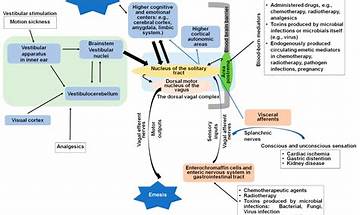8.4 Brain Science Daily | Science New Research: Complex brain cell connections are more common than imagined.

Journal of Brain Science No.1813
August 4, 2023
Science newsletter
1, a new study of Science: rewriting textbooks! Complex brain cell connections are more common than expected.
Source: Biology Tong
Early descriptions captured many dendrites extending from the cell body. Until today, neuroscientists generally believe that Purkinje cells have only one primary dendrite, which is connected with a fiber in the brain stem. Recently, however, researchers at the University of Chicago have found that almost all Purkinje cells in the human cerebellum have multiple primary dendrites.
Studies have shown that about 50% of Purkinje cells also have this more complex structure. Among these cells, 25% accept inputs from multiple climbing fibers, which are connected with different primary dendrites. The experiment of recording cell activity in living mice also shows that the primary branches can be activated independently and respond to different stimuli from the environment.
2. PNAS: Is the boy brought by dad smarter? More father's company will have a unique influence on the development of boys' brains and nerves.
Source: Bio Valley
Father's care is related to the increase of asymmetric synaptic density in offspring male rats
In mammals, early parental care is very important for infants and affects many neurological and behavioral activities. Recently, a new study examined the influence of parental care on the neural development of offspring voles through two different parental care methods.
It is found that there is a significant interaction between the percentage of father's care and synaptic symmetry, and the higher the level of father's care, the more asymmetric synaptic density of male offspring, and the role of asymmetric synapses is to release neurotransmitters, which can induce nerve excitement. Therefore, in the prairie vole, the father's care only has a specific impact on the social behavior and nervous system development of male offspring.
3, Environmental Science & Technology: Intergenerational effect of tributyltin exposure on the neural development of male offspring rats and its mechanism.
Source: Bioon cells
Tributyltin is one of the components of marine antifouling coatings, which can be enriched in human body through the food chain and pose a threat to human health. Polycystic ovary syndrome (PCOS) is an endocrine disease, and the offspring of PCOS patients are at higher risk of various neurodevelopmental disorders. Recently, the teams of Zuo Zhenghong and He Chengyong of Xiamen University deeply explored the influence of tributyltin exposure on the neural development of male offspring (F1-F3 generation) and its potential mechanism.
It was found that the newborn F1 rats opened their eyes too early and their visual orientation was delayed, and the male F1 rats had anxiety and cognitive defects before puberty. These neurodevelopmental effects were also observed in F2 and F3 males. In addition, F1-F3 males showed increased serotonin and dopamine levels, and the hippocampal neurons were loosely arranged. It was also observed that the expression of genes involved in intercellular adhesion decreased and the DNA methylation of Dsc3 promoter increased in F1-F3 males.
4, Brain Research Bulletin: New technology reveals "obvious changes" in the aging brain.
Source: Alzheimer's disease
The energy required by the brain accounts for 20% of human energy consumption, so the brain and cardiovascular system must work closely together to ensure that every part of the brain has enough energy supply. This is done by many neurovascular units (NVU), whose task is to provide nutrition for neurons.
Recently, a new study found that the amplitude of cerebrovascular oscillation and brain waves have changed in the elderly population. But what is more striking is the change of consistency between them, which shows that the coordination between energy supply and demand in the brain is adversely affected by age.
5, Nature Mental Health: Lack of motivation and pleasure plays an important role in influencing the social function of patients with cross-diagnosis mental disorders.
Source: Institute of Psychology Chinese Academy of Sciences
The lack of motivation/pleasure in negative symptoms, rather than the lack of expression, plays a key role in affecting the social function level of schizophrenia patients. Recently, Chen Chuqiao's research team and their collaborators in the Laboratory of Neuropsychology and Applied Cognitive Neuroscience, the Key Laboratory of Mental Health of China Academy of Sciences found that the lack of motivation/pleasure is closely related to social function and can explain a larger proportion of social function variation. Motivation/pleasure deficiency factor may be a potential intervention target to relieve the clinical symptoms of schizophrenia, major depression and bipolar disorder and improve social function.
6, THE LANCET: specializes in "recurrent headaches"! This oral medicine takes effect within 4 weeks, and the number of attacks in nearly half of patients is reduced by 50%.
Source: New medical perspectives
The incidence of chronic migraine in the global general population is about 1%~2%. The clinical application of injectable drugs for chronic migraine (such as monoclonal antibodies targeting small molecule calcitonin gene-related peptide [CGRP] and botulinum toxin A) is limited due to factors such as accessibility and patient's tendency to take oral drugs.
Recently, a heavy phase III trial showed that atogepant oral treatment (30mg twice a day or 60mg once a day) for 12 weeks can effectively reduce the number of days of chronic migraine attacks per month by 6-8 days. Previous studies have confirmed the efficacy and safety of atogepant in the preventive treatment of migraine. This study is "the first time to prove that atogepant can be used for the preventive treatment of chronic migraine", and atogepant is expected to be an effective and well-tolerated oral preventive treatment option for patients with chronic migraine.
7, Frontiers in Psychology: A ten-year cohort study of China scholars found that insisting on doing housework every day reduced the risk of dementia by 51%.
Source: iNature
As we all know, physical activity can improve physical function and mental health, and reduce the incidence of dementia. However, there is no research in East Asia to analyze the relationship between the frequency of housework and the incidence of dementia. Recently, Professor Wang Yongjun and Professor Zhang Yingli of Kangning Hospital in Shenzhen found that in a cohort lasting for ten years, compared with people who don't often do housework, the incidence of dementia in people who do housework almost every day is reduced by 51%. Among the elderly in China, frequent housework is related to reducing the incidence of dementia.
8, Psychological Research: factors affecting the judgment of the passage of time
Source: Psychology Department of Tsinghua University
In daily life, people often feel that time passes fast or slowly, which is called PoTJ. Previous studies have shown that PoTJ is influenced by emotional valence and emotional arousal. However, few studies have verified the effects of alertness, attention to time and time expectation on PoTJ, and whether these effects are stable in different time windows. Recently, the research group of Zheng Meihong from the Department of Psychology of Tsinghua University found that besides emotional state, alertness and time expectation are also important factors that affect PoTJ. All-day PoTJ and short-term PoTJ have the strongest correlation, that is, the perception of time lapse in a long time range is influenced by accumulated time lapse experience and recent time lapse experience, which means that the judgment of time lapse in a long time range may depend more on memory and analysis than on the current perception.
Revising: Simon
Declaration: All article resources on this website, unless otherwise specified or labeled, are collected from online resources. If the content on this website infringes on the legitimate rights and interests of the original author, you can contact this website to delete it.






